
How Remote Workers Impact Enterprise Collaboration
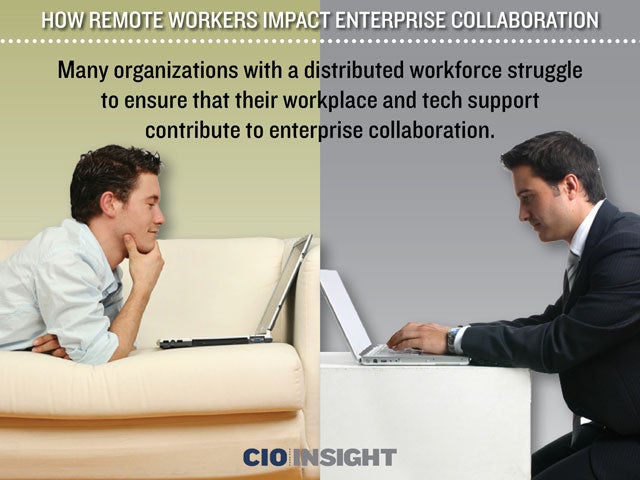 How Remote Workers Impact Enterprise Collaboration
How Remote Workers Impact Enterprise Collaboration
Many organizations with a distributed workforce struggle to ensure that their workplace and tech support contribute to enterprise collaboration.
 Design Drivers
Design Drivers
85% of execs said their organization’s office space was designed to allow and encourage employees to interact with each other often, and 81% said the improvement of employee productivity was strongly considered.
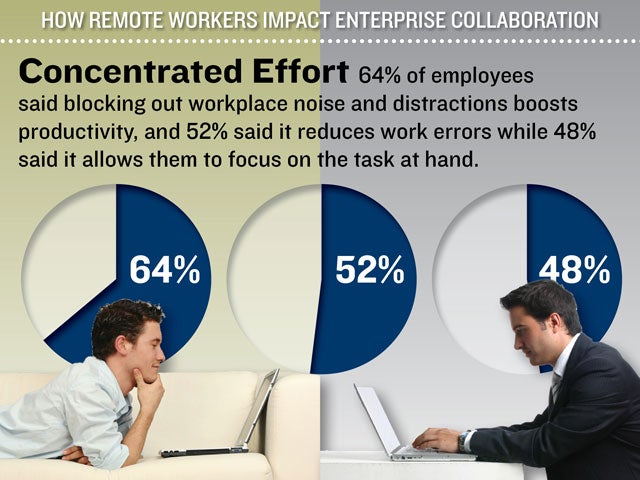 Concentrated Effort
Concentrated Effort
64% of employees said blocking out workplace noise and distractions boosts productivity, and 52% said it reduces work errors while 48% said it allows them to focus on the task at hand.
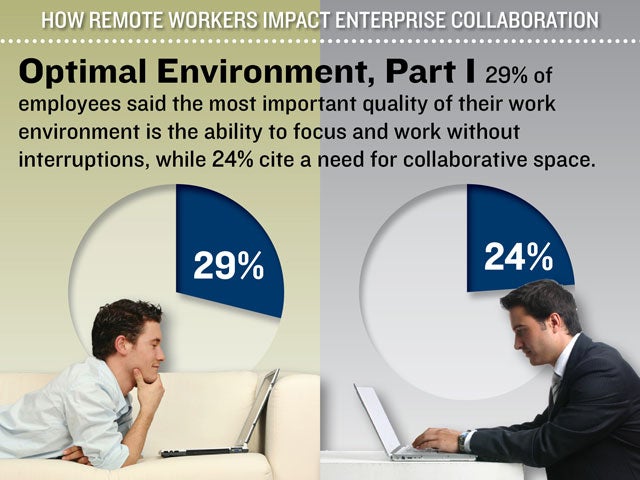 Optimal Environment, Part I
Optimal Environment, Part I
29% of employees said the most important quality of their work environment is the ability to focus and work without interruptions, while 24% cite a need for collaborative space.
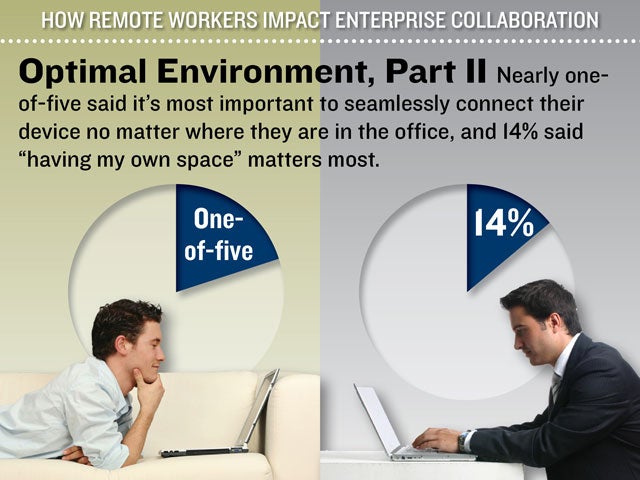 Optimal Environment, Part II
Optimal Environment, Part II
Nearly one-of-five said it’s most important to seamlessly connect their device no matter where they are in the office, and 14% said “having my own space” matters most.
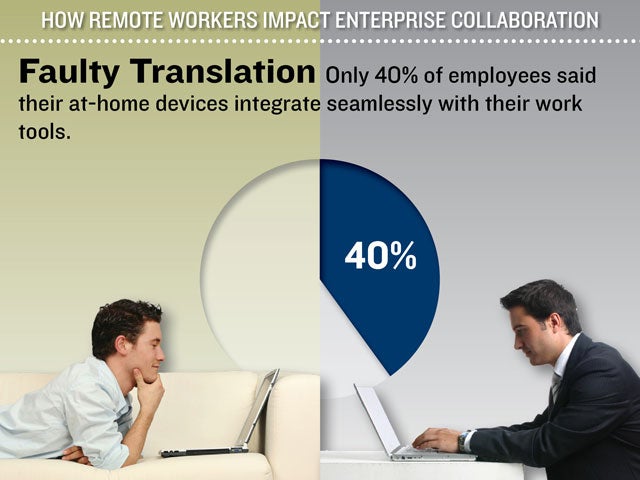 Faulty Translation
Faulty Translation
Only 40% of employees said their at-home devices integrate seamlessly with their work tools.
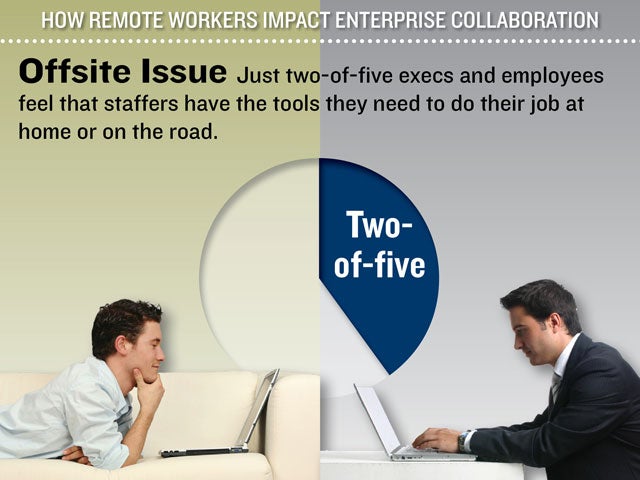 Offsite Issue
Offsite Issue
Just two-of-five execs and employees feel that staffers have the tools they need to do their job at home or on the road.
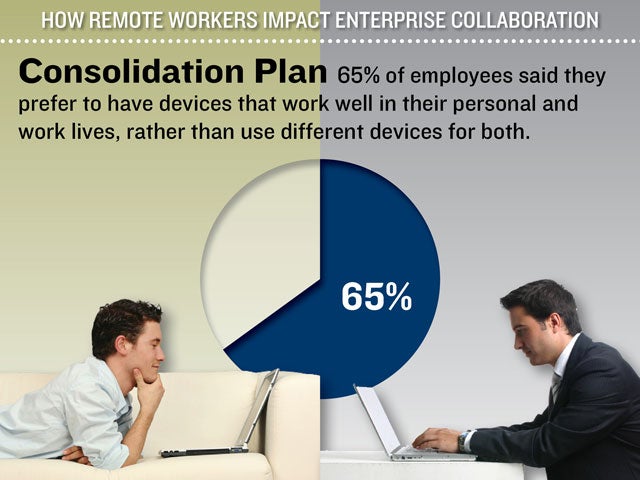 Consolidation Plan
Consolidation Plan
65% of employees said they prefer to have devices that work well in their personal and work lives, rather than use different devices for both.
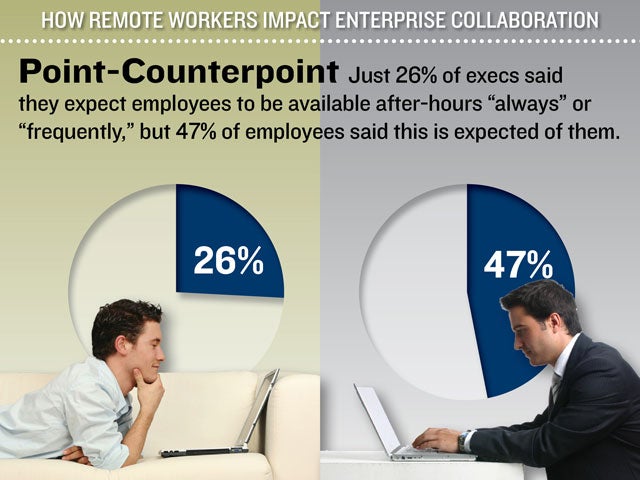 Point-Counterpoint
Point-Counterpoint
Just 26% of execs said they expect employees to be available after-hours “always” or “frequently,” but 47% of employees said this is expected of them.
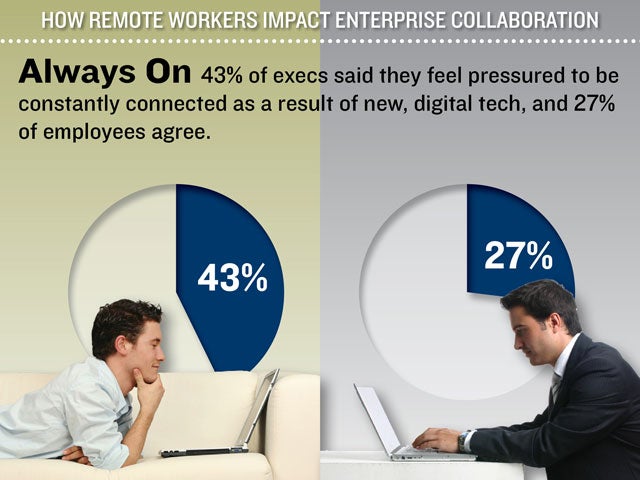 Always On
Always On
43% of execs said they feel pressured to be constantly connected as a result of new, digital tech, and 27% of employees agree.
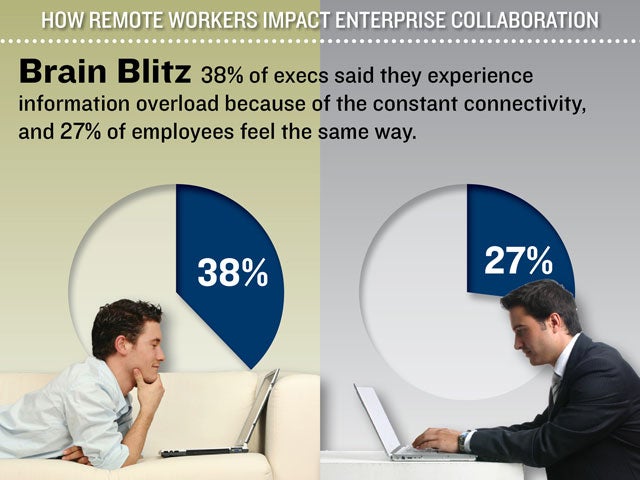 Brain Blitz
Brain Blitz
38% of execs said they experience information overload because of the constant connectivity, and 27% of employees feel the same way.